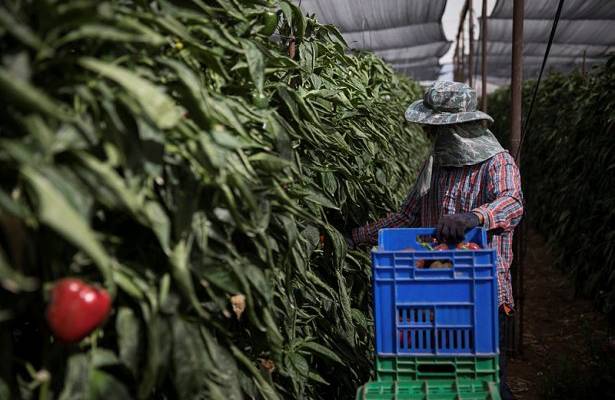Israeli farmers in Tsofar and Naharayim stand to lose everything if Jordan goes through with its plan to downgrade the peace treaty with Israel.
By: AP and United with Israel Staff
Israeli farmers voiced concern over Jordan’s intention not to renew parts of its landmark peace treaty with Israel that leased out two small border areas for agriculture, a development that could mean the end of their livelihood.
Jordan’s King Abdullah II announced Sunday that he plans to pull out of annexes from the 1994 peace agreement that allowed Israel to lease Tsofar (Ghamr in Arabic) and the northern enclave of Naharayim (Baqura) for 25 years. The leases expire next year.
His decision reflects the cool relations between the kingdom and Israel. Last week saw a large Jordanian protest against renewing the agriculture lease.
‘Significant to the Security of the Area’
Eran Baron, an Israeli farmer in the border village of Tsofar, said that farmers like him have invested lots of resources in the area, along the southern border near Aqaba.
He said he has not yet heard of any formal change in the current arrangement, but if denied access to his crops, he said “we will not be able to survive here.”
Eyal Bloom, Central Arava Regional Council head, expressed concern about the Jordanian decision, saying “the agricultural lands in the Tzofar enclave are significant to the security of the area, the state, the livelihood of the residents and agriculture in the central Arava. This would mean the collapse of 30 farms in an area of some 1,400 dunams (346 acres),” according to Ynet news
“It is unacceptable that after so many years, there would be such a huge disruptive change,” Bloom added.
The two parcels of land are just a few square kilometers (square miles) that have been used by Israelis for decades.
Prime Minister Benjamin Netanyahu stated that Israel “will go into negotiations with them [Jordan] on the option of extending the existing agreement.”
However, “there’s no doubt that in a general outlook, the entire treaty is a valuable asset, important to both countries,” he underscored.
Limited Relations
While Jordan officially remains committed to the peace agreement, Israel’s second with an Arab country, relations are limited largely to behind-the-scenes security ties and some environmental cooperation.
Israel and Jordan signed a trade treaty in 1996 and in 2014, agreed to a $500 million natural gas deal effective for 15 years.
Israel’s security and intelligence ties with Jordan are more discreet but have likewise strengthened, especially since the Arab Spring uprisings in 2011 and the rise of the Islamic State (ISIS). Reports indicate that Israel is instrumental in securing King Abdullah’s throne.
Relations have hit some rocky spots in recent years, especially over Israeli access to the Temple Mount. Jordan has repeatedly demanded that Israel prevent Jews from entering Judaism’s holiest – and Islam’s third-holiest – site. It has recalled its ambassador over the issue in the past.
Moreover, the Jordanian people, comprised mostly of Palestinians, overwhelmingly reject any form of normalization with Israel.










